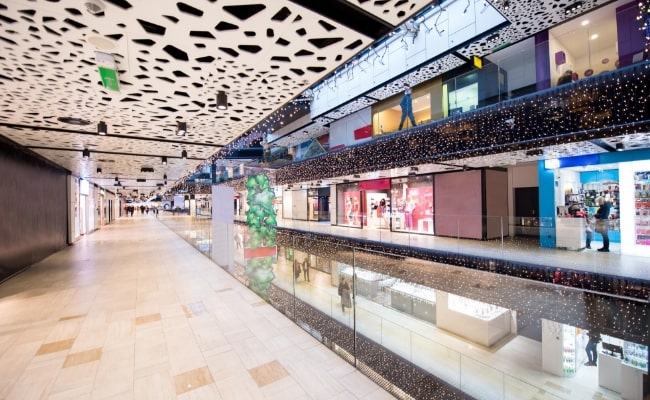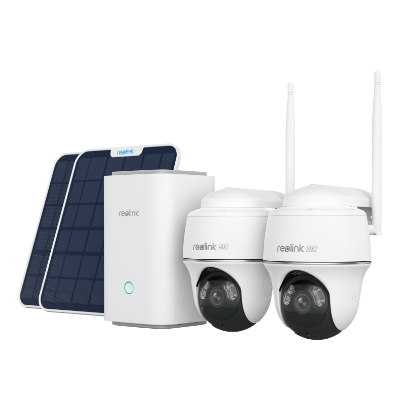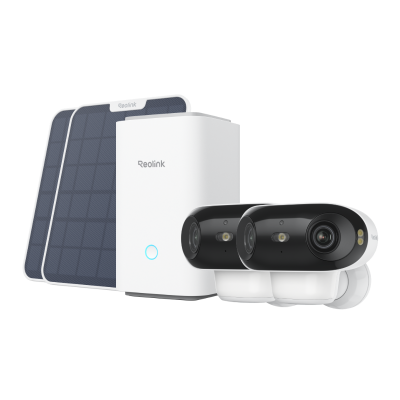Commercial Alarm Systems: Ensure Safety and Prevent Loss

Some of the properties that handle a large volume of stock, cash, employees, and customers on a daily basis are retail stores, warehouses, offices, restaurants, and so on. Such functions make them susceptible to multiple forms of insecurity like break-ins, property damage, fire setting, and many others. To ensure the property is well protected from such threats and give maximum security to the assets of a business, It is paramount for a business to install robust commercial alarm systems.
In this article, we will look at the basics of commercial security systems for commercial properties, including types of systems, best market solutions, factors of consideration while buying, installation-related details, and, of course, pricing.
Overview of Commercial Alarm Systems
A commercial alarm system consists of panels, detectors, sensors, communication devices, notification appliances, and components that are employed to detect and respond to a wide range of threats in a commercial application.
What is a Commercial Alarm System?
A commercial alarm system is an automated system installed to detect threats like fire, break-ins, vandalism, etc., and alert designated authorities to facilitate quick response. These systems comprise security devices like smoke detectors, motion sensors, door contacts, etc., connected by low-voltage wiring to a main control panel. The panel houses a communicator that contacts the central monitoring station via phone or internet when a sensor gets activated. The monitoring center verifies the alarm signal and dispatches emergency help from fire stations, law enforcement, etc., as required.
Some systems also have built-in speakers that emit loud sirens to frighten intruders and attract public attention when sensors detect a break-in. Many systems provide mobile connectivity through apps to receive alerts and live video streaming for remote monitoring by users.
Types of Commercial Security Alarm Systems
There are four major types of commercial security systems available:
- Commercial fire alarm systems detect fire hazards using temperature, smoke, and flame sensors.
- Commercial burglar alarm systems deter theft using sensors on entry points and motion detectors inside premises.
- Commercial security camera systems provide 24/7 video surveillance both indoors and around the building perimeter.
- Commercial access control systems manage access to sensitive business areas through access cards, biometric scans, etc.
Best Commercial Security Alarm Systems
Some top commercial security system manufacturers renowned for reliable products are:
- Honeywell: Honeywell offers the MAXPRO Cloud system that leverages IP cameras with machine learning video analytics while storing data on the cloud.
- DSC: The Neo from DSC provides a scalable and modular system to secure small and mid-sized businesses.
- Bosch: Bosch provides AVIOTEC detectors that detect flames based on advanced video analytics for reliable fire protection.
- ADT: ADT provides comprehensive monitored security solutions tailored to all business needs and backed by professional customer service.
Best Commercial Security Systems with Alarms
Reolink offers innovative PoE and wireless security camera systems packed with useful features for commercial setups. Their product, named Reolink Home Hub, is an ideal choice for small businesses seeking a smart commercial system with alarms.
Best Commercial Camera System for Small Business - Reolink Home Hub with Argus PT Ultra
The Reolink Home Hub, paired with Argus PT Ultra cameras, creates an ideal commercial-grade surveillance system for small retail stores, cafes, etc. This wireless system delivers sharp 4K ultra HD video with rich details to recognize faces, read plates, and analyze incidents effortlessly. Argus PT cams powered continuously by a solar panel and battery eliminate wiring constraints while ensuring uninterrupted operation.
Built-in anti-theft features like human motion detection and real-time notifications enable prompt response to break-in attempts. Ample 1-year local storage in the NVR removes recurring monthly fees for cloud plans, allowing easy retrieval of footage.
Wireless Security System With 4K PT Standalone Battery/Solar Wi-Fi Cameras
4K Color Footage Day & Night, 1 Year of Local Storage, Exclusive Anti-Theft Algorithms, Expandable System Up to 8 Reolink Cams
Best Commercial Security System with Cameras and Alarms - Reolink Home Hub with Argus 4 Pro
For spacious commercial premises like warehouses and office buildings, the Reolink Home Hub combined with Argus 4 Pro solar-powered cameras creates an ideal monitored security solution. It delivers superior 4K super HD visuals with accurate color night vision for unambiguous identification. An ultra-wide 180° viewing angle minimizes blind spots by providing complete coverage of large areas with fewer units. The durable, weather-resistant design powered continuously by a 6W solar panel cuts power and battery costs while ensuring unfailing operation.
Smart features like human motion detection and mobile push alerts enable real-time response to security events. With robust end-to-end encryption securing system access and footage, this affordable Reolink surveillance platform provides enterprise-level protection without monthly fees.
4K UHD Wi-Fi 6 Security System with 180° Blindspot-Free View
ColorX Night Vision, 1 Year of Local Storage, Exclusive Anti-Theft Algorithms, 180° Blindspot-Free Coverage, Expandable System Up to 8 Reolink Cams.
What to Consider When Choosing a Commercial Alarm System
Protecting a commercial establishment involves evaluating risks unique to your property and business. The major factors to consider when picking a security system are:
Business Size
Larger complexes need exponentially more equipment and strategic placement compared to smaller setups to eliminate vulnerabilities.
Budget
Prioritize critical components first if unable to afford a comprehensive system immediately. Allow room for adding devices later as needs evolve.
Security Needs
Assess past incidents and potential threats specific to your location, assets, and operations to identify security gaps that need addressing.
Smart Features
Modern IP-based systems offer intelligent features like remote monitoring, real-time notifications, access control integration, and video analytics that boost protection.
Compatibility with Other Systems
Choose solutions that can integrate seamlessly with existing or future access control, POS, and building management systems for centralized control.
Commercial Building Alarm Systems: Installation and Costs
Follow this pre-work before installing commercial security systems for optimal performance:
Commercial Fire Alarm System Installation Tips
- Mark proposed locations for all components on floor plans during planning for the most efficient cabling and power needs.
- Install fire-rated back boxes made of galvanized steel or aluminum with proper fire caulking seals to house fire alarm devices.
- Lay conduits meeting UL safety standards with gentle bends for easy pulling of wires without damage.
- Place manual pull stations near exits while smoke and heat detectors go close to possible fire ignition points for the fastest detection.
Cost of Alarm Systems for Commercial Settings
- A basic burglary system for a small store with a control panel, keypad, siren, motion sensor, and perimeter sensors may cost around $1500 plus $60 monthly for monitoring.
- For medium facilities like banks and offices, comprehensive systems start at around $10,000, with monitoring fees between $100 and $250 based on the number of detection points.
- In large campuses with multiple buildings, complex systems can cost over $100,000, with monthly monitoring exceeding $500.
FAQs
How much does a commercial alarm system cost?
The cost varies based on the number of devices needed to adequately cover the premises, which depends on square footage and layout. Small systems start at around $1500 plus recurring monitoring fees, while large solutions for big facilities can cost over $100,000.
What is the difference between commercial security and residential security?
Commercial properties need access control, fire detection, and video surveillance alongside intruder alert systems due to higher loss risks from inventory or cash theft, vandalism, arson, etc. They require comprehensive solutions, strategic system placement, and constant monitoring to minimize vulnerabilities.
Conclusion
Installing suitable commercial alarm systems is critical for protecting all establishments against increasingly sophisticated burglary, arson, and vandalism threats. IP-based smart systems with remote connectivity and real-time notifications offer affordable yet effective monitoring options tailored for businesses of all scales. With proactive planning considering key factors like security needs, compatibility with other systems, and flexible scalability, retailers can choose solutions matching their budget that maximize safety and minimize risks.
Search
Subscribe for the Latest Updates
Security insights & offers right into your inbox


